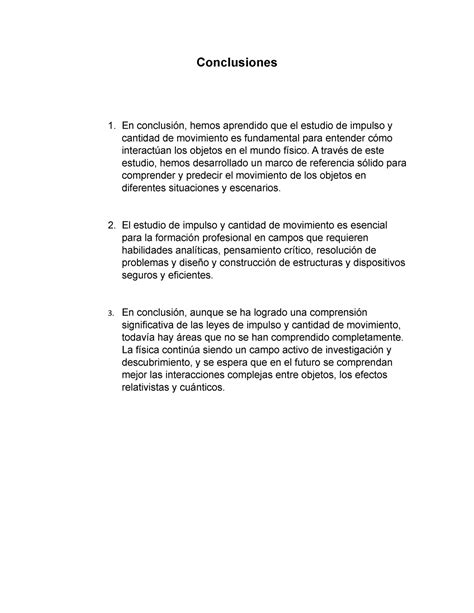Intro
The importance of understanding medications cannot be overstated, especially when it comes to treating specific health conditions. One such medication that has garnered attention for its unique properties and applications is sucralfate. This drug has been widely used for several decades, primarily for the treatment of gastrointestinal issues. Its mechanism of action, benefits, and potential side effects make it an interesting subject for exploration. For individuals suffering from stomach ulcers or other gastrointestinal problems, sucralfate presents a potential solution that can help manage their condition and improve their quality of life.
The use of sucralfate in medical practice is a testament to the continuous evolution of pharmacology and the quest for effective treatments. By delving into the specifics of sucralfate, including its composition, how it works, and its practical applications, we can gain a deeper understanding of its role in healthcare. This knowledge is not only beneficial for medical professionals but also for patients who are looking for comprehensive information about their treatment options. As we explore the world of sucralfate, it becomes clear that this medication offers a unique approach to healing and protecting the gastrointestinal tract, setting it apart from other treatments available in the market.
Understanding sucralfate requires a look into its history, development, and the science behind its effectiveness. Originally developed to treat peptic ulcers, sucralfate has shown promise in various gastrointestinal conditions, thanks to its ability to form a protective barrier over ulcers, shielding them from acid and allowing them to heal. This protective mechanism is at the heart of sucralfate's benefits, offering patients a chance to manage their symptoms and work towards recovery. With its unique mode of action and the potential for fewer side effects compared to other treatments, sucralfate has become a valuable option for those dealing with gastrointestinal health issues.
What is Sucralfate?

Sucralfate is a medication used primarily for the treatment and prevention of gastrointestinal ulcers, including peptic ulcers. It belongs to a class of drugs known as ulcer medications, which work by protecting the ulcer site and promoting healing. The drug's active ingredient is sucralfate, which is a complex of sulfated sucrose and aluminum hydroxide. This unique composition allows sucralfate to adhere to the ulcer site, forming a protective barrier that prevents further irritation from stomach acid, bile, and pepsin, thereby facilitating the healing process.
How Does Sucralfate Work?
Sucralfate's mechanism of action is based on its ability to bind to the ulcer site, where it forms a protective complex. This complex shields the ulcer from acid and enzymes in the stomach, allowing the ulcer to heal naturally. The protective barrier formed by sucralfate also promotes the production of growth factors that are essential for tissue repair and regeneration. This dual-action approach not only accelerates the healing of existing ulcers but also prevents the formation of new ones, making it an effective treatment for patients suffering from chronic gastrointestinal issues.Benefits of Sucralfate

The benefits of sucralfate are multifaceted, ranging from its efficacy in treating gastrointestinal ulcers to its relatively mild side effect profile compared to other ulcer medications. Some of the key benefits include:
- Effective Ulcer Healing: Sucralfate has been shown to be effective in healing peptic ulcers, including gastric and duodenal ulcers.
- Prevention of Ulcer Recurrence: By protecting the ulcer site and promoting healing, sucralfate can help prevent the recurrence of ulcers.
- Minimal Side Effects: Compared to other treatments for gastrointestinal ulcers, sucralfate tends to have fewer side effects, making it a preferable option for many patients.
- Convenience: Sucralfate is typically administered orally, which is convenient for patients, especially when compared to treatments that require injection or intravenous administration.
Practical Applications of Sucralfate
In practical terms, sucralfate is used in various clinical scenarios, including the treatment of peptic ulcers, stress ulcer prophylaxis in critically ill patients, and the prevention of ulcer recurrence in patients with a history of gastrointestinal ulcers. Its application extends beyond these uses, as researchers continue to explore its potential benefits in other gastrointestinal conditions.Side Effects and Precautions

While sucralfate is generally well-tolerated, like all medications, it can cause side effects. Common side effects include constipation, diarrhea, nausea, and abdominal discomfort. In rare cases, more serious side effects can occur, such as allergic reactions. It is essential for patients to discuss their medical history, including any allergies or existing health conditions, with their healthcare provider before starting sucralfate. Additionally, sucralfate can interact with other medications, so it's crucial to inform healthcare providers about all medications being taken.
Interactions with Other Medications
Sucralfate can interact with various medications, affecting their absorption and efficacy. For instance, it can reduce the absorption of certain antibiotics, anticoagulants, and thyroid medications. Patients should be aware of these potential interactions and take sucralfate at least 2 hours apart from other medications to minimize these effects.Administration and Dosage

The administration and dosage of sucralfate depend on the specific condition being treated. For the treatment of peptic ulcers, sucralfate is usually taken orally, 1 gram four times a day, on an empty stomach. It is essential to follow the dosage instructions provided by the healthcare provider and to take the medication for the full prescribed duration, even if symptoms improve before completing the treatment course.
Special Considerations
Special considerations are necessary for certain patient populations, including pregnant women, nursing mothers, and patients with renal impairment. Sucralfate should be used under the guidance of a healthcare provider in these cases, as its safety and efficacy may vary.Conclusion and Future Directions

In conclusion, sucralfate offers a valuable treatment option for patients suffering from gastrointestinal ulcers and other related conditions. Its unique mechanism of action, coupled with its relatively mild side effect profile, makes it a preferred choice for many healthcare providers. As research continues to uncover the full potential of sucralfate, it is likely that its applications will expand, providing even more benefits for patients. For now, sucralfate remains a cornerstone in the treatment of gastrointestinal ulcers, offering hope and relief to those affected by these conditions.
Final Thoughts
As we reflect on the importance of sucralfate in modern medicine, it becomes clear that this medication has made a significant impact on the treatment of gastrointestinal conditions. Its efficacy, safety, and convenience have positioned it as a leading option for patients and healthcare providers alike. Whether you are a patient seeking information about your treatment options or a healthcare professional looking to expand your knowledge, understanding sucralfate is a crucial step in navigating the complex world of gastrointestinal health.What is sucralfate used for?
+Sucralfate is primarily used for the treatment and prevention of gastrointestinal ulcers, including peptic ulcers.
How does sucralfate work?
+Sucralfate works by forming a protective barrier over the ulcer site, shielding it from stomach acid and enzymes, thereby facilitating healing.
What are the common side effects of sucralfate?
+Common side effects include constipation, diarrhea, nausea, and abdominal discomfort. Rarely, more serious side effects can occur, such as allergic reactions.
We hope this comprehensive overview of sucralfate has provided you with valuable insights into its uses, benefits, and potential side effects. Whether you're seeking information for personal health reasons or professional development, understanding sucralfate is an important step in navigating the complex and ever-evolving field of gastrointestinal health. Feel free to share your thoughts, ask questions, or seek further clarification on any aspect of sucralfate and its applications in the comments below. Your engagement and feedback are invaluable in our ongoing pursuit of knowledge and health.
